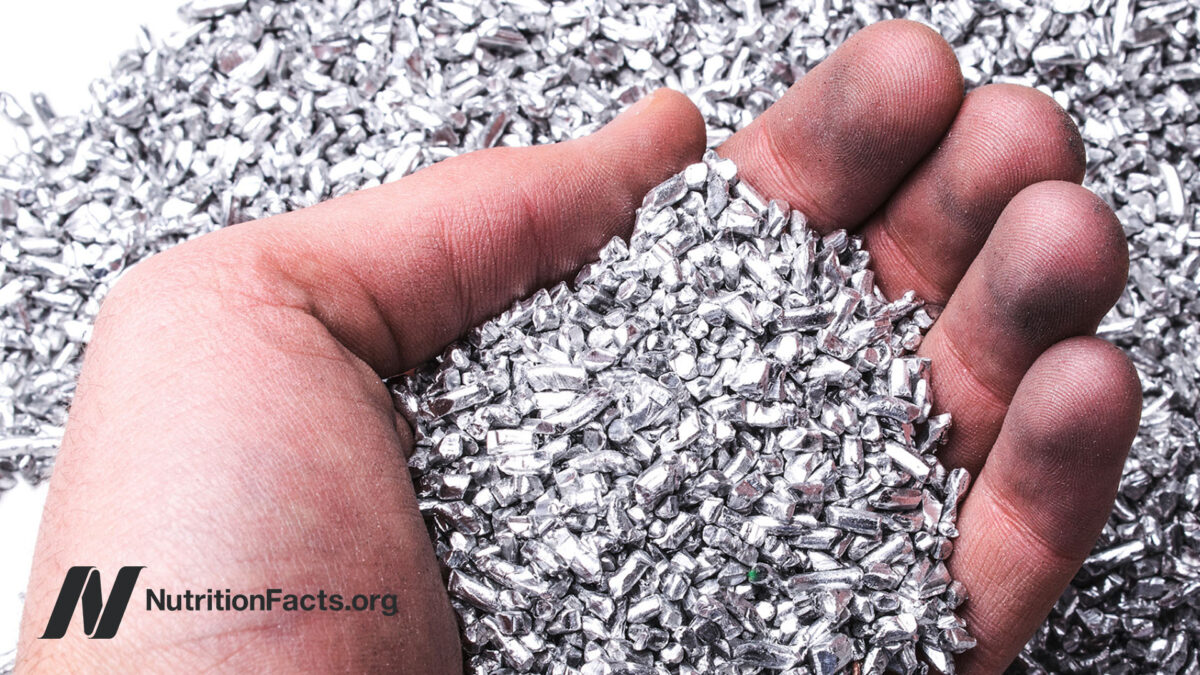
Alzheimer’s Disease
My mom’s mother died of Alzheimer’s disease. As a kid, I loved spending time with her. She was the perfect—and perfectly doting—grandmother. She’d want to take me to toy stores, but, geeky me, I just wanted to go to the library. When we’d get back to the house, my arms filled with borrowed books, she’d let me sit way back on her big couch and read and draw pictures. Then she’d bring me blueberry muffins she made with a big mechanical mixer that took up half the kitchen counter.
Later in life, my grandma started to lose her mind. By then, I was in medical school, but my newfound knowledge was useless. She had turned. My previously sweet and stately grandmother now threw things at people. She cursed. Her caretaker showed me the teeth marks on her arm where my once kind, loving grandma had bitten her.
That’s the horror of brain disease. Unlike a problem with your foot or your back or even another vital organ, brain disease can attack your self. Alzheimer’s disease, which kills nearly 85,000 Americans each year, is one of the most physically and emotionally burdensome diseases, for both sufferers and caregivers. Unlike stroke, which can kill instantly and without any warning, Alzheimer’s involves a slower, more subtle decline over months or years. Instead of cholesterol-filled plaques in your arteries, plaques made of a substance called amyloid develop in the brain tissue itself, associated with the loss of memory and, eventually, loss of life.
Despite the billions of dollars spent on research, there is still neither a cure nor an effective treatment for the disease, which invariably progresses to death. In short, Alzheimer’s is reaching a state of crisis— emotionally, economically, and even scientifically.
The good news, as a senior scientist at the Center for Alzheimer’s Research entitled a review article, is that “Alzheimer’s Disease Is Incurable but Preventable.” Diet and lifestyle changes could potentially prevent millions of cases a year. How? There is an emerging consensus that “what is good for our hearts is also good for our heads,” because clogging of the arteries inside of the brain with atherosclerotic plaque is thought to play a pivotal role in the development of Alzheimer’s disease. It is not surprising, then, that the dietary centerpiece of the 2014 “Dietary and Lifestyle Guidelines for the Prevention of Alzheimer’s Disease,” published in the journal Neurobiology of Aging, was: “Vegetables, legumes (beans, peas, and lentils), fruits, and whole grains should replace meats and dairy products as primary staples of the diet.”
We generally think of atherosclerosis as a condition of the heart, but a substantial body of evidence strongly associates atherosclerotic arteries with Alzheimer’s disease. Autopsies have shown repeatedly that Alzheimer’s patients tend to have significantly more atherosclerotic plaque buildup and narrowing of the arteries within the brain, and the clogging of the arteries inside, and leading to, the brain with cholesterol-filled plaque can drastically reduce the amount of blood—and therefore oxygen—your brain receives. In light of such findings, some experts have even suggested that Alzheimer’s be reclassified as a vascular disorder.
A study of three hundred Alzheimer’s patients found that treating vascular risk factors, such as high cholesterol and blood pressure, may even slow the progression of the disease but not stop it. That’s why prevention is the key, and it’s never too early to start eating healthier. Dietary decisions you make now may directly influence your health much later in life, including the health of your brain.
For substantiation of any statements of fact from the peer-reviewed medical literature, please see the associated videos below.
Popular Videos for Alzheimer’s Disease


A Testimonial from Dr. Ornish’s Alzheimer’s Progression Reversal Study
What does improving the cognition and function of Alzheimer's patients with lifestyle medicine actually translate...
Can Alzheimer’s Disease Be Reversed with a Plant-Based Diet?
Dr. Dean Ornish publishes the first randomized controlled trial investigating whether a plant-based diet and...
Controversy Around FDA’s Approval of Biogen Alzheimer’s Drug, Aducanumab
I discuss the safety and efficacy of the newest Alzheimer's drug treatments, aducanumab (Aduhelm) and...
The Role of Endotoxins in Alzheimer’s and Dementia
Why can a single meal high in saturated fat impair cognition?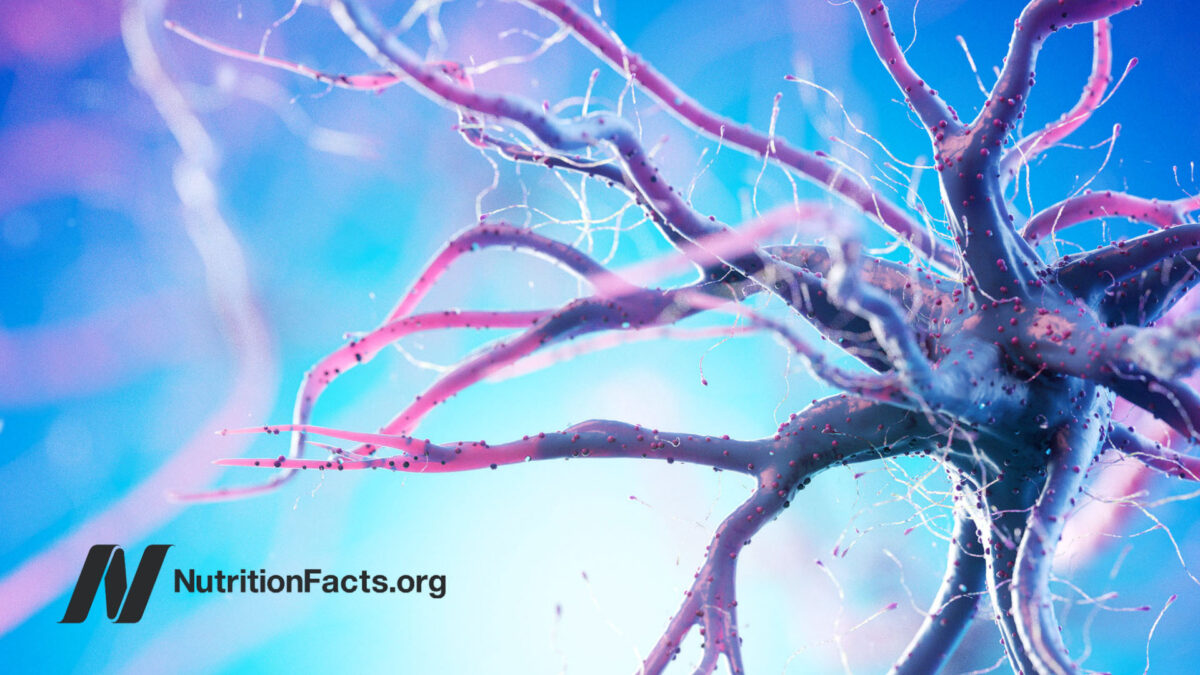
Advanced Glycation End Products (AGEs) and Cognitive Decline
AGEs may be one explanation for why those who consume meat may have up to...
Pesticides (DDT) and Alzheimer’s Disease
How can we avoid the breakdown product of pesticides that may increase the risk of...
Benefits of Grapes for Brain Health
Grape juice and whole grapes are put to the test for brain function, including cognitive...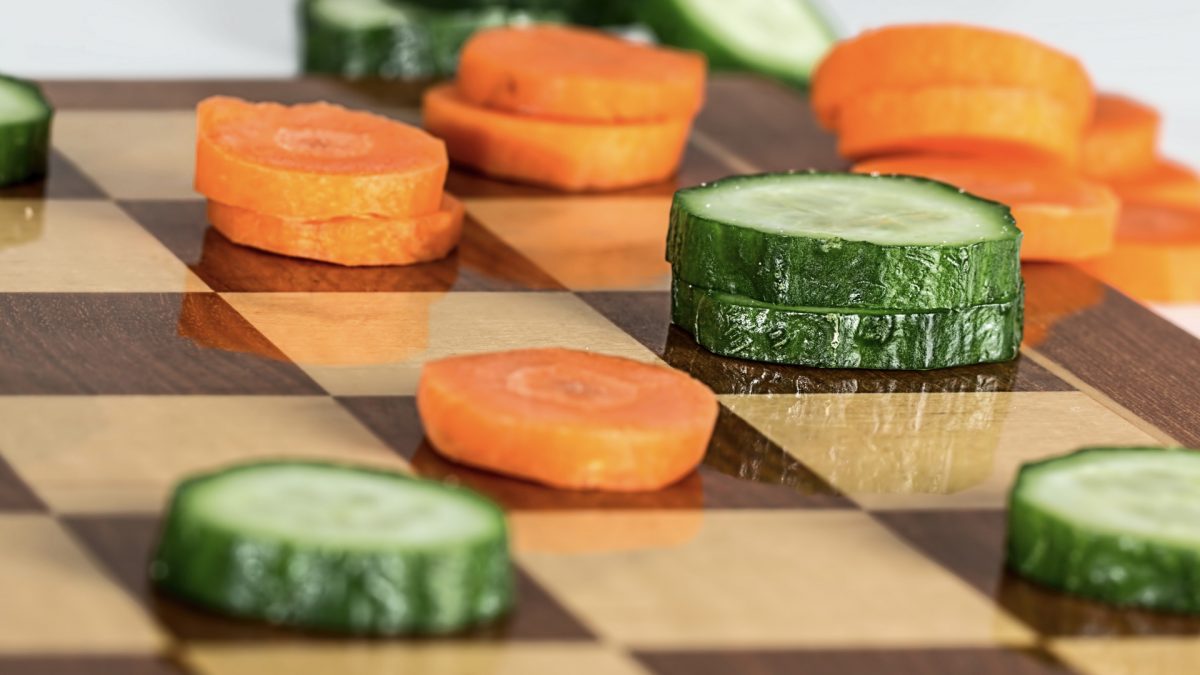
Brain-Healthy Foods to Fight Aging
What is the best source of lutein, the primary carotenoid antioxidant in the brain?
How to Prevent Alzheimer’s with Diet
What evidence is there that our meat-sweet diets play a cause-and-effect role in dementia?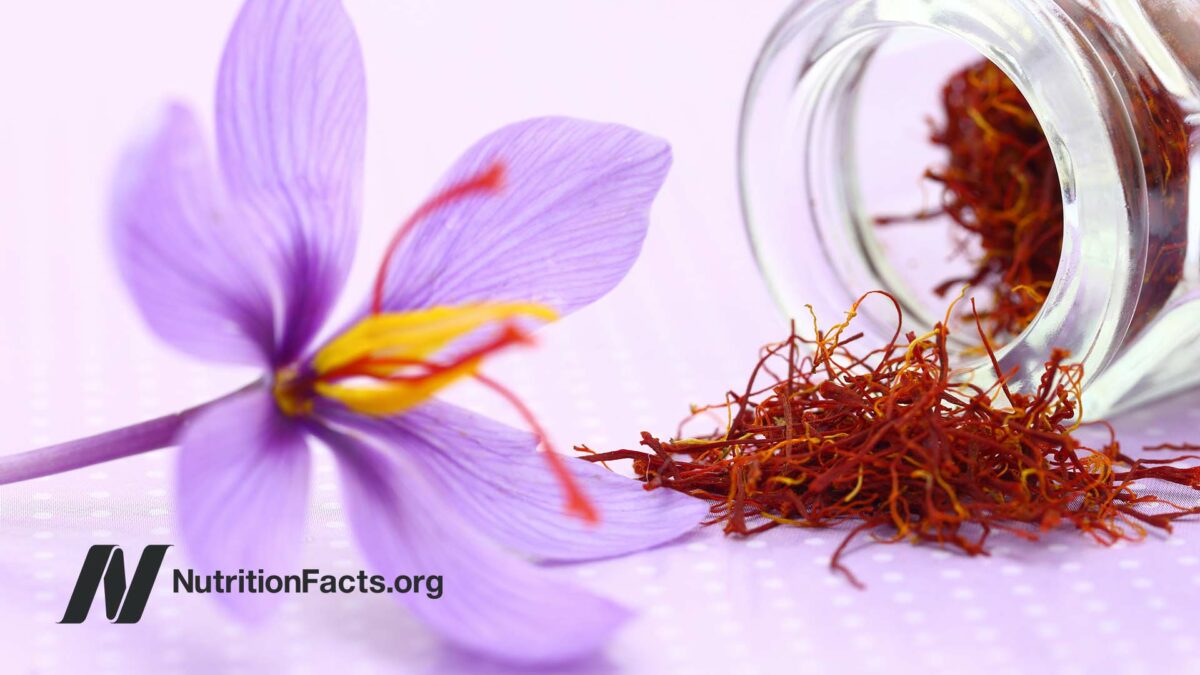
Saffron vs. Memantine (Namenda) for Alzheimer’s
The spice saffron is pitted head-to-head against the leading drug for severe Alzheimer’s disease.
The Alzheimer’s Gene: Controlling ApoE
Diet may explain the Nigerian Paradox, where they have among the highest rates of the...
Cholesterol and Alzheimer’s Disease
High-tech advances, such as PET scanning, offer new insight into the role cholesterol plays in...
Alzheimer’s and Atherosclerosis of the Brain
Lack of adequate blood flow to the brain due to clogging of cerebral arteries may...
Alzheimer’s May Start Decades Before Diagnosis
Neurodegenerative brain changes begin by middle age, underscoring the need for lifelong preventive brain maintenance.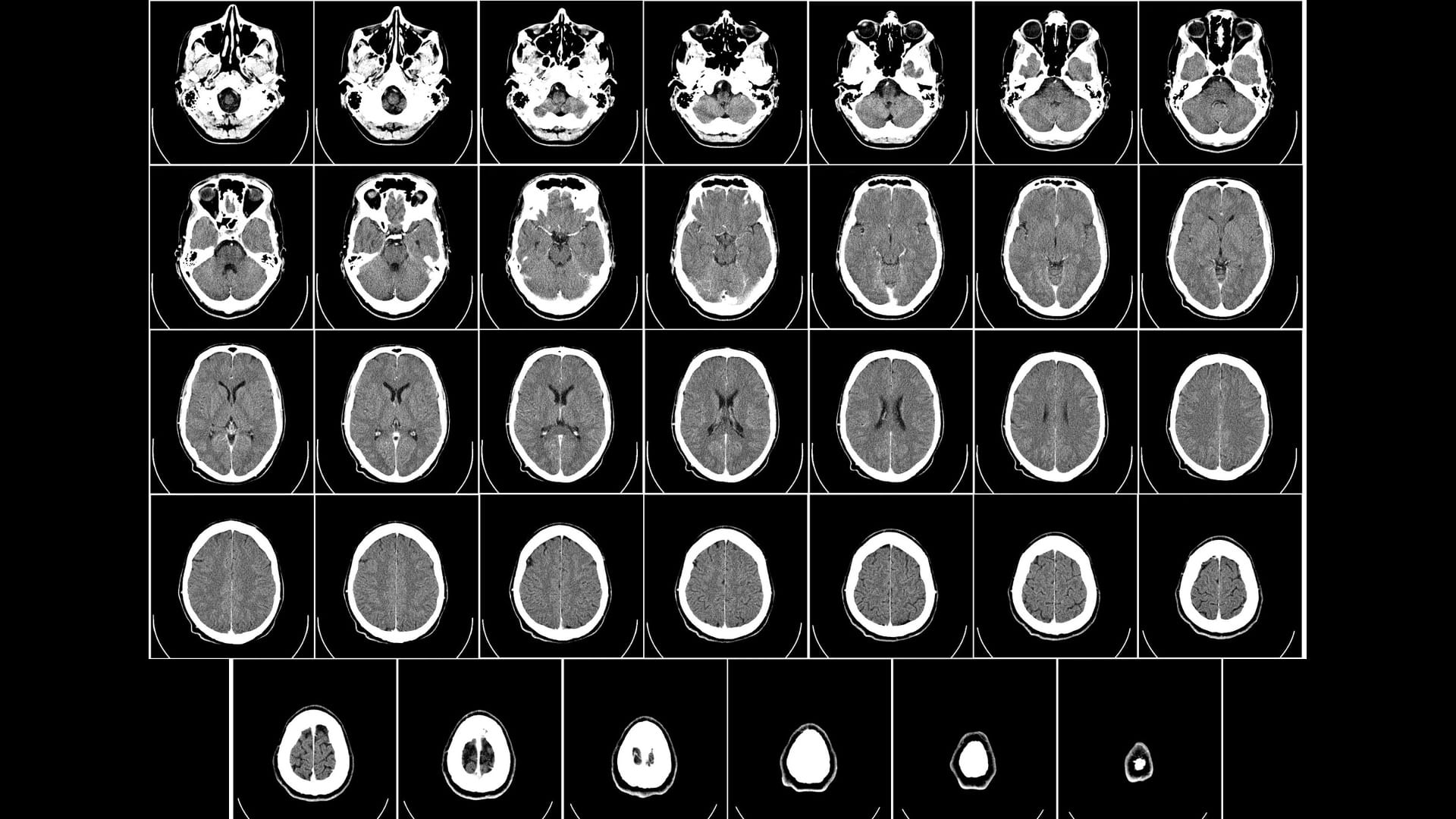
Preventing Brain Loss with B Vitamins?
One week on a plant-based diet can significantly drop blood levels of homocysteine, a toxin...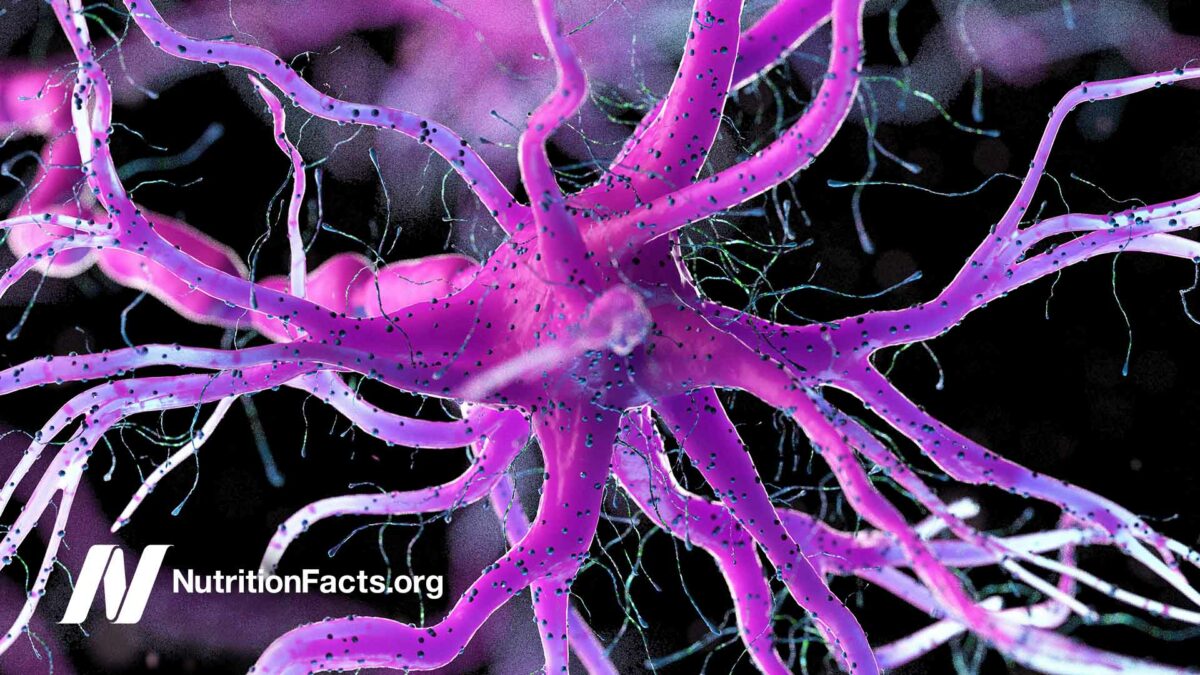
Reducing Glycotoxin Intake to Prevent Alzheimer’s
Advanced glycation end products in our diet may suppress sirtuin enzyme activity and play a...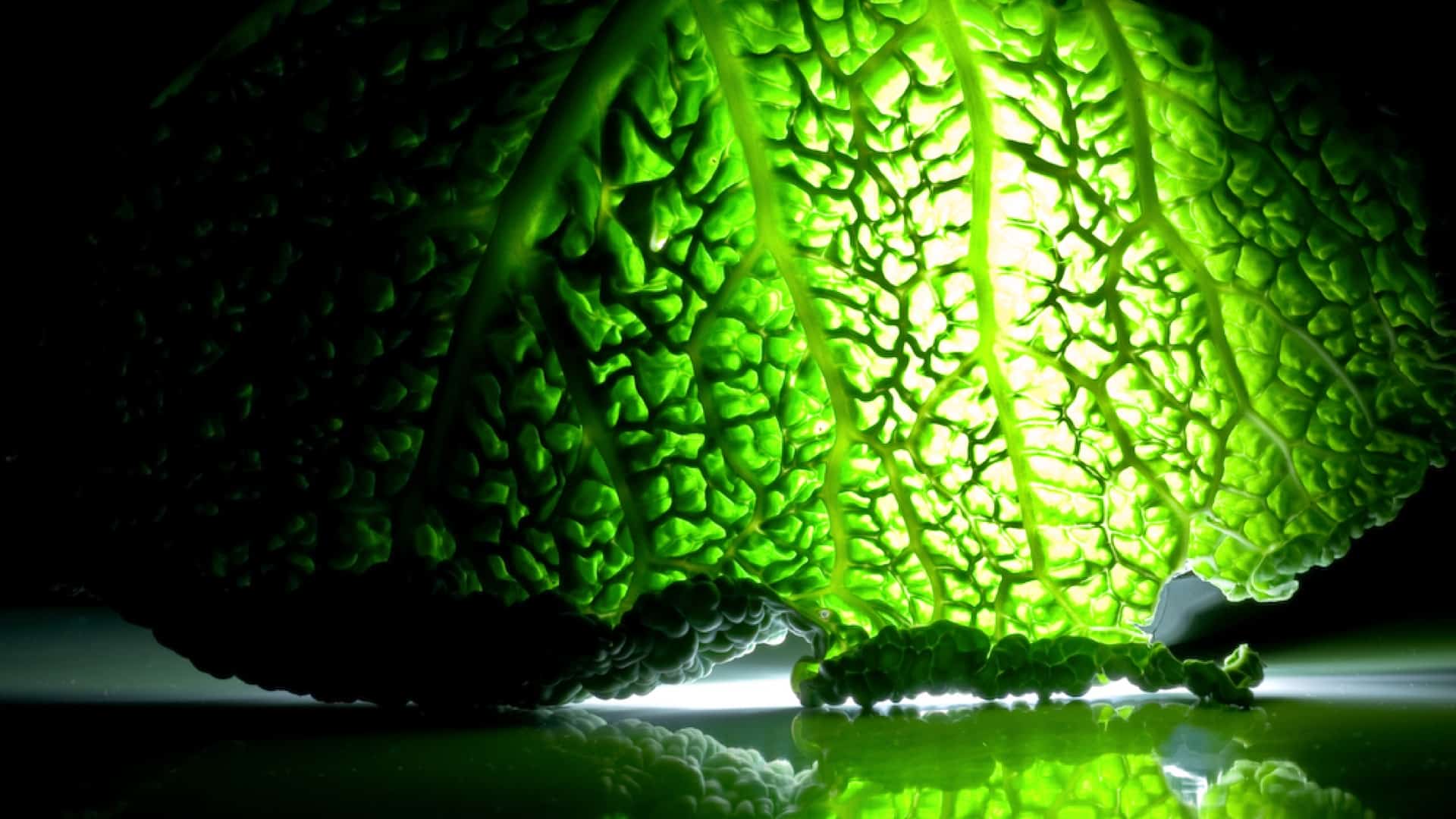
Preventing Alzheimer’s Disease with Plants
If foods like berries and dark green leafy vegetables have been found protective against cognitive...
Treating Alzheimer’s with Turmeric
What a teaspoon a day of the spice turmeric may be able to do for...
Alzheimer’s Disease: Grain Brain or Meathead?
Grain consumption appears strongly protective against Alzheimer’s disease, whereas animal fat intake has been linked...
Oxidized Cholesterol as a Cause of Alzheimer’s Disease
Oxidized cholesterol can be a hundred times more toxic than regular cholesterol, raising additional concerns...All Videos for Alzheimer’s Disease
-

The Side Effects of Statins: Are They Worth It?
When statin-“intolerant” patients are challenged blindly, how many are really suffering muscle side effects?
-

Caveats and Side Effects of Taurine Supplements
What are the downsides of taurine supplementation?
-

Lesser-Known NAD+ Boosting Supplements—Tryptophan, NADH, NMNH, and NRH
What are the pros, cons, and efficacy of dihydronicotinamide riboside (reduced NR), perhaps the most potent NAD+ precursor, as well as reduced NMN, taking NAD+ directly, or making it from scratch from tryptophan?
-

Microbiome Manipulation with Oligomannate for Treating Dementia
A prebiotic derived from a type of brown seaweed is used for mild to moderate Alzheimer’s dementia in China. Does it work?
-

Melatonin Supplements for Sleep and Anti-Aging?
The secretion of melatonin appears to progressively decline with age, dropping as much as 70 percent between middle and older age.
-

The Best Way to Boost NAD+: Supplements vs. Diet (webinar recording)
The pros and cons of all the NAD+ supplements and what are the ways to boost NAD+ naturally with diet and lifestyle?
-

Does Lion’s Mane Mushroom Powder Have Benefits for Dementia?
Regular mushroom consumption is associated with a lower risk of cognitive decline and dementia, but data from interventional trials are mixed.
-

Is Rapamycin a Universal Anti-Aging Drug?
Self-experimentation with the anti-aging drug rapamycin continues to be strongly discouraged.
-

The Enzyme mTOR as an Engine of Aging
Inhibiting mTOR, the “master determinant of lifespan,” is considered the best validated aging regulator.
-

The Benefits and Side Effects of Spirulina
Blue-green algae, chlorella, and spirulina are all advertised as being beneficial, but they could be harmful because they are often contaminated with algal toxins.
-

There’s a Fly in My Aging Research!
How do you unlock the mysteries of aging?
-

How Much Exercise Does It Take to Improve Aging Cognitive Function?
If the relationship between exercise and dementia prevention is cause-and-effect, as much as 20 percent of Alzheimer’s disease may be attributable to physical inactivity.
-

Cognitive Stimulation, Music Therapy, and Cryostimulation to Improve Cognitive Function
What were the findings of an analysis of common, non-drug, non-supplement, non-lifestyle approaches to dementia prevention and treatment?
-

Epigenetic Clocks for Testing Your Biological Age
Epigenetic clocks have become established as robust measures of chronological age, surpassing telomere length as the best age predictor.
-

Does Aluminum Cause Alzheimer’s Disease?
Although aluminum isn’t necessarily benign, what convinced me that it does not play a role in Alzheimer’s disease?
-

Centrum Multivitamin, Vitamin C, Beta Carotene, Souvenaid, Zinc, or Calcium Supplements for Preventing Alzheimer’s?
Which might actually make cognition worse: Centrum multivitamin, vitamin C, beta carotene, Souvenaid, zinc, or calcium supplements?
-

Can Vitamin E or Selenium Supplements Prevent or Treat Alzheimer’s?
The Prevention of Alzheimer’s Disease by Vitamin E and Selenium trial randomized more than 7,500 older men to take vitamin E, selenium, both, or neither (just placebos) for five years.
-

Resveratrol Tested for Alzheimer’s, Arthritis, and Osteoporosis
Resveratrol appears to triple the rate of age-related brain shrinkage.
-

A Testimonial from Dr. Ornish’s Alzheimer’s Progression Reversal Study
What does improving the cognition and function of Alzheimer’s patients with lifestyle medicine actually translate to in terms of human impact?
-

Can Alzheimer’s Disease Be Reversed with a Plant-Based Diet?
Dr. Dean Ornish publishes the first randomized controlled trial investigating whether a plant-based diet and lifestyle program may reverse the course of early-stage Alzheimer’s disease.
-

APOE—The Single Most Important Gene for Longevity
APOE is the primary cholesterol carrier in the brain and plays a major role in packaging and transporting LDL cholesterol throughout the body.
-

Dental Implant Overdentures and Cognitive Function
Chewing pressure sensations to the nerves in the jaw have neurological effects.
-

The Best Sleeping Position for Glymphatic Flow in the Brain
What can we do to prevent the decline in glymphatic brain filtration as we age?
-

How Much Sleep Is Needed for Glymphatic Flow (Brain Cleaning)?
One function of sleep is the clearance of toxic waste byproducts through a newly discovered drainage system in the brain.
-

Can Getting Transfusions of Young Blood Slow Aging?
Ready for the mind-blowing twist in the mystery of why the injection of blood from young animals into old ones has a rejuvenative effect?
-

Ginkgo Biloba as a Brain Health Supplement for Dementia
Ginkgo does not seem to play a role in preventing cognitive decline or dementia, but it may play a role in treating it.
-

How Not To Age – Live Presentation
In this live lecture, Dr. Greger offers a sneak peek into his latest book, How Not to Age, a New York Times Best Seller.
-

Does Prevagen Really Work?
Why did the makers of Prevagen settle a class action lawsuit in 2020 with the FTC over deceptive business practices and false advertising? Is Prevagen safe?
-

VSED: The Downsides of Fasting for Ending Life
What are the pros and cons of voluntarily stopping eating and drinking to end your life?
-

Controversy Around FDA’s Approval of Biogen Alzheimer’s Drug, Aducanumab
I discuss the safety and efficacy of the newest Alzheimer’s drug treatments, aducanumab (Aduhelm) and lecanemab (Leqembi).
-

Dietary Sources of the “Longevity Vitamin” Ergothioneine
It may be even more important to include mushrooms (or tempeh) in our diet as we age.
-

Book Trailer for How Not to Age
Learn about my newest book, How Not to Age, a New York Times Best Seller.
-

Does Coffee Inhibit Iron Absorption? What Are the Effects of Having Too Much Iron?
Coffee and common herbal teas impair iron absorption, which may help explain some of their benefits.
-

The Role of Endotoxins in Alzheimer’s and Dementia
Why can a single meal high in saturated fat impair cognition?
-

The Harms Associated with Eating More Southern-Style Food
Diet appears to mediate the majority of the racial health gap.
-

Advanced Glycation End Products (AGEs) and Cognitive Decline
AGEs may be one explanation for why those who consume meat may have up to three times the risk of developing dementia compared with vegetarians.
-

The Best Diet for Healthy Aging
Swapping just 1 percent of plant protein in place of animal protein was associated with significantly less age-related deficit accumulation.
-

Pesticides (DDT) and Alzheimer’s Disease
How can we avoid the breakdown product of pesticides that may increase the risk of Alzheimer’s disease as much as if you carried APOE e4, the so-called Alzheimer’s gene?
-

Can Vegan Fecal Transplants Lower TMAO Levels?
If the microbiome of those eating plant-based diets protects against the toxic effects of TMAO, what about swapping gut flora?
-

Are Beyond Meat and the Impossible Burger Healthy?
What happens when you compare the trans fats, saturated fat, sodium, and cholesterol levels in plant-based versus animal-based burgers?
